
Find A Professional
More Items From Ergsy search
-

Will I be able to engage in physical exercise?
Relevance: 100%
-

Can exercise trigger asthma symptoms?
Relevance: 86%
-
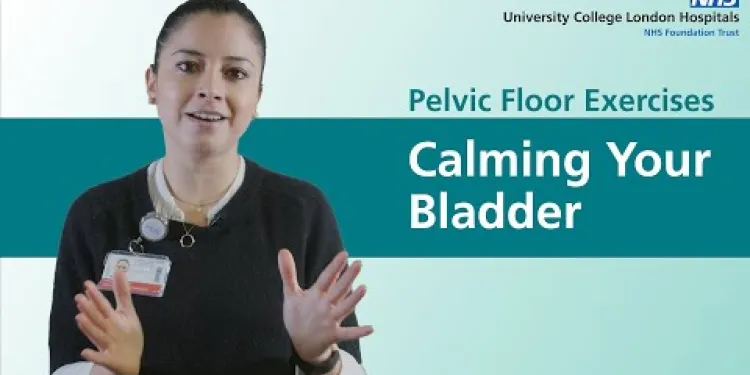
Pelvic Floor Exercises - Using Your Pelvic Floor to Calm Down Your Bladder
Relevance: 86%
-
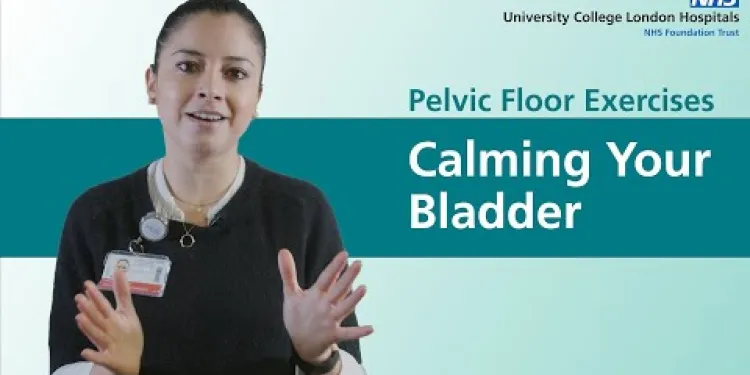
Pelvic Floor Exercises - Using Your Pelvic Floor to Calm Down Your Bladder
Relevance: 83%
-

Can exercises help with labor preparation?
Relevance: 82%
-
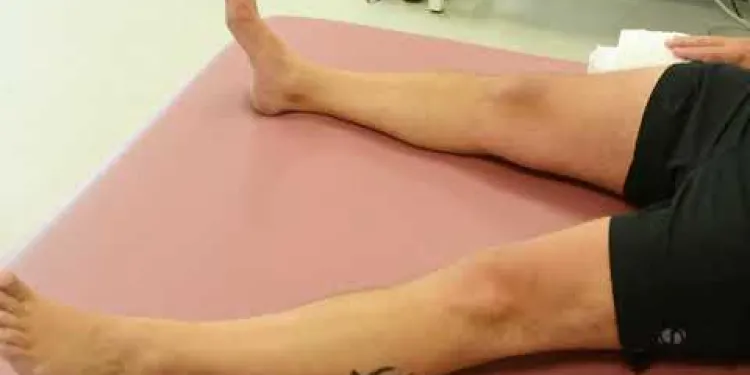
Joint School - Hip Exercises
Relevance: 79%
-
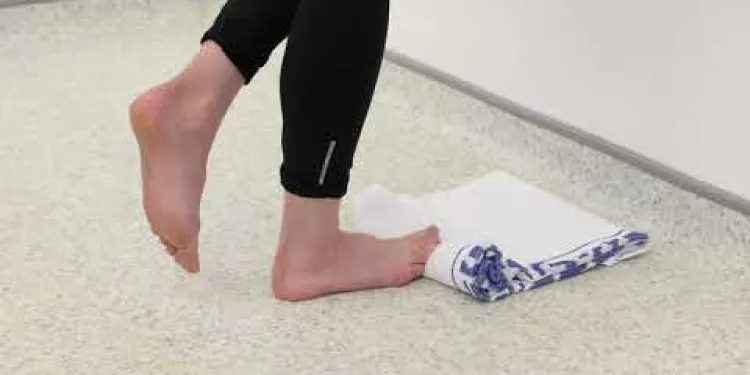
Plantar Fascia Loading Exercise (High Load Exercise)
Relevance: 79%
-

Joint School - Knee Exercises
Relevance: 78%
-
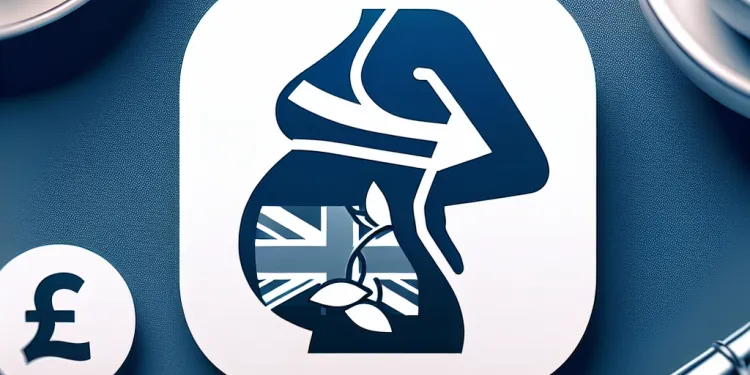
How does exercise benefit pregnancy?
Relevance: 77%
-

Can exercise help prevent gestational diabetes?
Relevance: 77%
-

Can I do abdominal exercises during pregnancy?
Relevance: 74%
-

Do I need to consult a doctor before exercising during pregnancy?
Relevance: 73%
-

Neck Exercises
Relevance: 70%
-

Facial exercise programme
Relevance: 70%
-

Exercise in patients with a neuropathy
Relevance: 69%
-

Will I need physical therapy after a hip replacement?
Relevance: 69%
-

Can I do high-impact exercises while pregnant?
Relevance: 68%
-

Are there specific exercises that can help with Carpal Tunnel Syndrome?
Relevance: 68%
-

How can I ensure safety during pregnancy exercises?
Relevance: 68%
-

Can physical symptoms be linked to relationship-induced depression?
Relevance: 67%
-

How often should I exercise during pregnancy?
Relevance: 66%
-
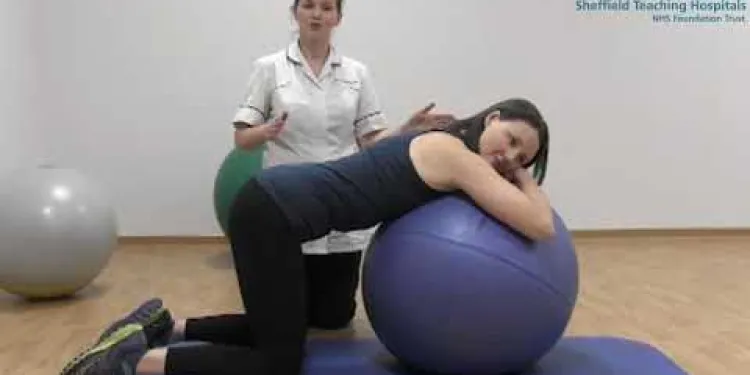
Mat and gym ball exercises with pregnancy related Pelvic Girdle Pain
Relevance: 66%
-

Can I take exercise classes during pregnancy?
Relevance: 66%
-
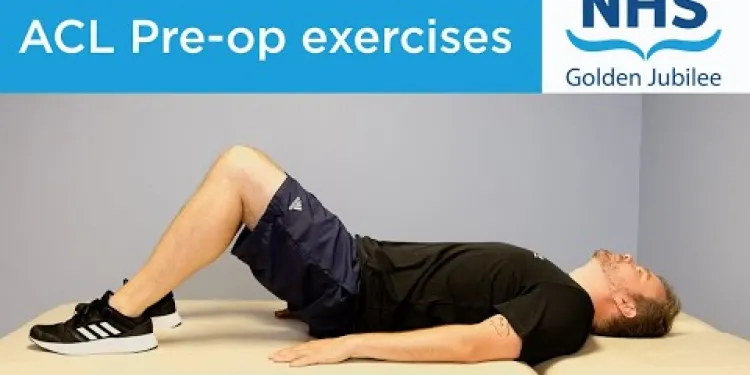
ACL pre-operation exercises
Relevance: 66%
-
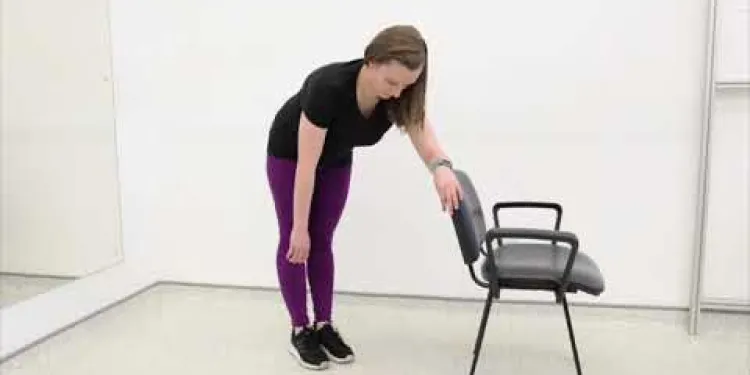
Frozen shoulder Pendular Exercises
Relevance: 66%
-
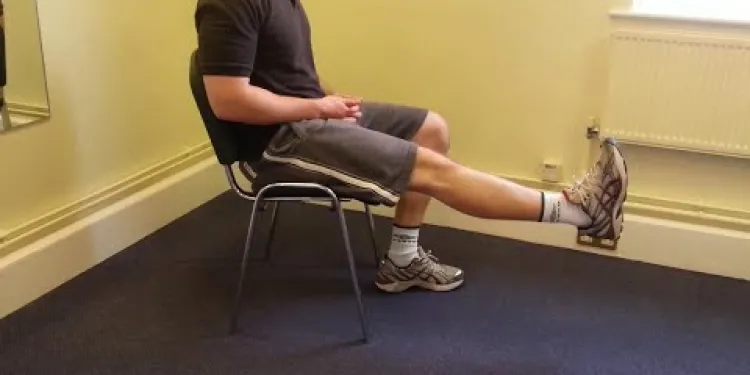
Knee Care Exercises
Relevance: 61%
-

Should I avoid lying on my back during exercise?
Relevance: 61%
-
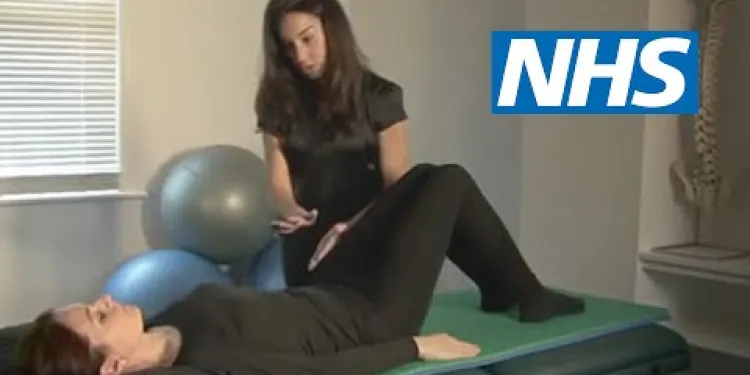
Exercises for sciatica: degenerative disc disease | NHS
Relevance: 61%
-

Falls Prevention - strength and balance exercises
Relevance: 61%
-

How important is physical activity in preventing obesity?
Relevance: 60%
-

Neck Care Exercises
Relevance: 59%
-

What exercises can I do during pregnancy?
Relevance: 58%
-
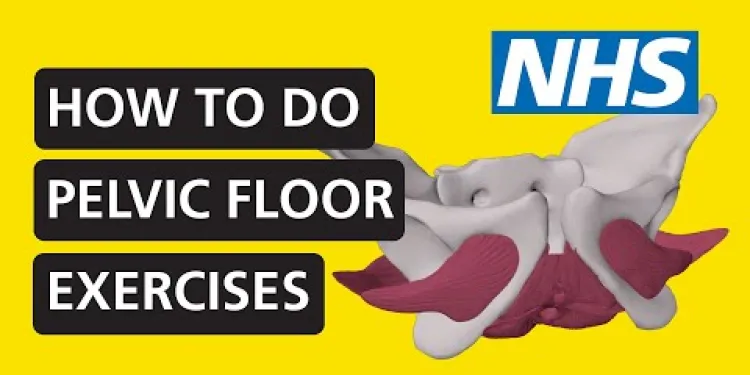
How to do pelvic floor exercises | NHS
Relevance: 58%
-

Neck Exercises
Relevance: 57%
-
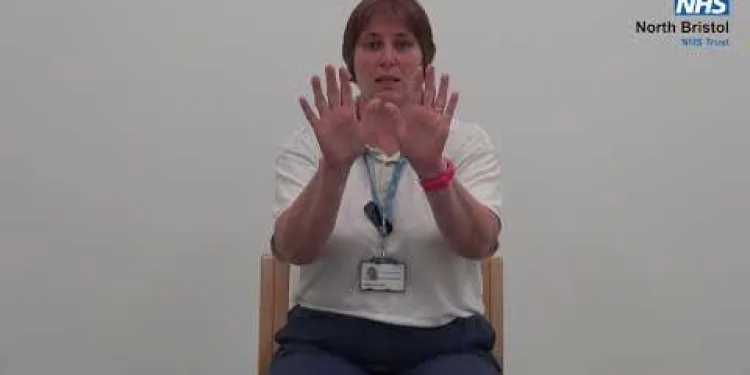
Shoulder Exercises 1
Relevance: 55%
-
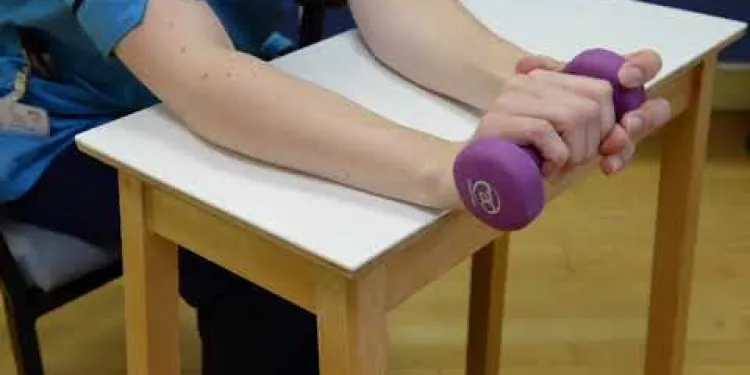
Elbow Eccentric Strengthening Exercise
Relevance: 54%
-
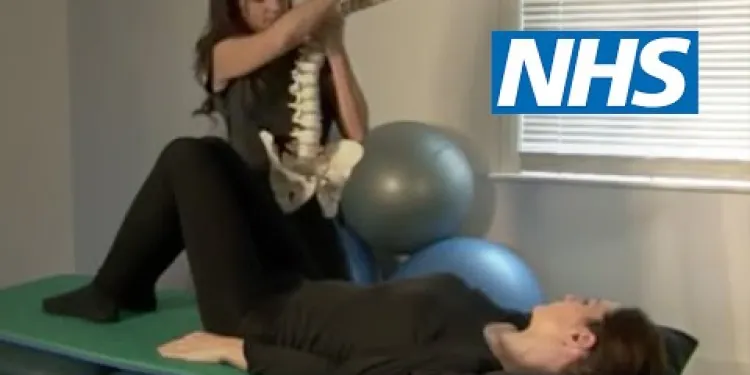
Exercises for sciatica: herniated or slipped disc | NHS
Relevance: 52%
-

Is it safe to exercise with a cold?
Relevance: 51%
-

Is it safe to exercise outside during a heatwave?
Relevance: 51%
-
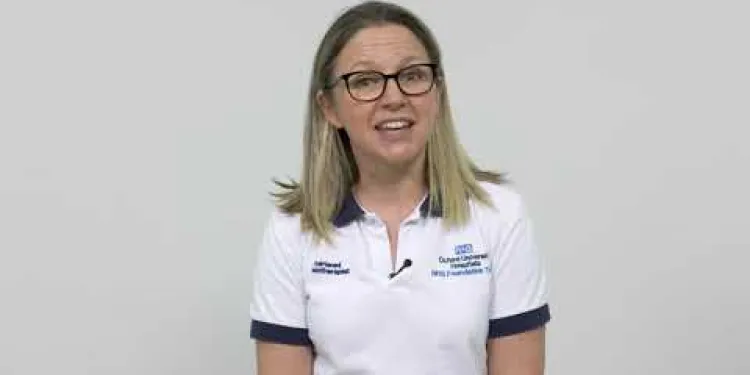
The Pelvic Floor Muscles - Developing an Exercise Programme
Relevance: 49%
Introduction to Physical Exercise
Engaging in physical exercise is an important aspect of maintaining a healthy lifestyle. Regular physical activity can help improve your fitness, boost your mood, and reduce the risk of chronic diseases. However, it's crucial to assess whether you are ready and capable of engaging in physical exercise before starting any exercise regimen.
Assessing Readiness for Exercise
Before beginning any new exercise routine, it's advisable to consider your current health status. If you are new to exercising or have existing health concerns, consult with a healthcare professional to determine what types of activities are suitable for you. They might recommend a physical examination to check your heart health, blood pressure, and overall fitness level.
Types of Exercise to Consider
There are various forms of exercise, each with its own benefits. Cardiovascular exercises such as walking, running, cycling, and swimming are great for improving heart health and endurance. Strength training exercises, including weight lifting or resistance band workouts, help build muscle mass and strengthen bones. Flexibility exercises like yoga and Pilates can enhance your range of motion and reduce stiffness.
Setting Realistic Goals
Setting realistic and achievable goals is a fundamental part of adhering to a consistent exercise routine. Start with simple activities that you enjoy and gradually increase intensity as your fitness level improves. Remember that it's important not to overdo it, especially if you are returning to exercise after a long break or trying something new.
Considerations for Special Populations
Specific populations, such as older adults, pregnant women, or individuals with chronic conditions, should tailor their exercise programs to accommodate their unique needs. Older adults might benefit from low-impact activities like walking or aqua aerobics, while pregnant women can focus on moderate exercises such as prenatal yoga. Always consult with a professional to ensure safe practices.
Staying Safe During Exercise
Safety should always be your priority when exercising. Warm up before starting your activity and cool down afterward to prevent injuries. Stay hydrated, listen to your body, and wear appropriate clothing and footwear. If you experience any pain or discomfort while exercising, stop immediately and consult a healthcare professional if necessary.
The Benefits of Regular Exercise
Regular exercise offers numerous benefits beyond physical health. It can elevate your mood, reduce anxiety, increase energy levels, and improve sleep quality. By incorporating physical activity into your routine, you invest in your overall well-being and long-term health.
Conclusion
In conclusion, engaging in physical exercise offers significant advantages for most individuals. Assess your readiness by consulting with a healthcare provider, choose suitable activities, set realistic goals, and ensure you exercise safely. By doing so, you can enjoy the myriad of benefits associated with a physically active lifestyle.
Exercise: Starting to Move
Doing exercise helps keep you healthy. It makes you fit, happy, and can stop you from getting sick. It's important to make sure you are ready to start exercising. Ask yourself if you feel good and can do it safely.
Are You Ready to Exercise?
Before you begin, think about how you feel. If you are new to exercise or have any health problems, talk to a doctor first. They can tell you what kind of exercises are okay for you. They might check your heart, blood pressure, and overall health.
What Exercises Can You Do?
There are different exercises to try. Walking, running, biking, and swimming help your heart and make you strong. Lifting weights and using bands make your muscles and bones strong. Yoga and Pilates help you stretch and move more easily.
Make Simple Exercise Goals
It's good to set simple goals you can reach. Start with exercises you like. As you get stronger, you can do a little more. Don't push yourself too hard, especially if you have not exercised in a long time.
Special Exercise Tips
Some people, like older adults or pregnant women, need special exercises. Older adults might like walking or water exercises. Pregnant women can try easy yoga. Always ask a professional you trust for advice.
Exercise Safely
Being safe is very important. Start with a warm-up and end with a cool-down. Drink water and wear clothes and shoes that fit well. If something hurts while you exercise, stop right away. Talk to a doctor if you need to.
Why Exercise Regularly?
Exercise is good for more than just your body. It makes you feel happier, less worried, gives you more energy, and helps you sleep better. Doing exercise often makes you healthier and happier in the long run.
Final Thoughts
Exercise is good for most people. Check with a doctor to make sure you are ready, pick exercises you like, set easy goals, and be safe. Exercise brings many good things to your life.
Frequently Asked Questions
Can I exercise if I have a chronic condition?
It's often possible to exercise with a chronic condition, but you should consult your healthcare provider for advice tailored to your specific situation.
What types of exercise are generally safe for most people?
Walking, swimming, and cycling are generally safe for most people, but always check with a healthcare provider if you have concerns.
How do I determine if an exercise is right for me?
Consider your goals, fitness level, and any medical conditions you have. Consulting a fitness professional can also be helpful.
Can I start exercising if I have never done it before?
Yes, it's never too late to start exercising. Begin with low-intensity activities and gradually increase the intensity as you build fitness.
How can exercise impact my health?
Regular exercise can improve cardiovascular health, help manage weight, improve mood, and enhance overall quality of life.
How soon after an injury can I resume exercise?
The timeline depends on the injury. Follow your doctor's recommendations and consider physical therapy to safely resume activity.
Is it safe to exercise every day?
Exercising every day can be safe as long as you incorporate rest days or vary the intensity to allow for recovery.
What precautions should I take before starting a new exercise routine?
Assess your health, seek medical advice if necessary, and consider starting with a fitness assessment.
How does age affect my ability to exercise?
While physical capabilities can change with age, exercising adapted to your ability level can offer numerous health benefits.
Can I engage in physical exercise during pregnancy?
Yes, many forms of exercise are safe during pregnancy, but it’s important to consult your doctor for specific advice.
Is there an ideal time of day to exercise?
The best time to exercise is when you can fit it into your schedule consistently. Some people prefer mornings, while others opt for evenings.
What are the signs I should stop exercising immediately?
Stop exercising if you experience chest pain, dizziness, severe shortness of breath, or joint pain.
Can I engage in physical exercise after surgery?
After surgery, gradual and appropriate exercises may aid recovery, but this should be guided by your healthcare provider.
How do I balance exercise with rest?
Balance exercise and rest by listening to your body, planning rest days, and incorporating different types of workouts.
Is cardio more important than strength training?
Both cardio and strength training are important for overall health. A balanced routine usually includes both.
How do I prevent injuries while exercising?
Prevent injuries by warming up, cooling down, using proper form, and not overdoing it.
How does nutrition affect my ability to exercise?
Good nutrition fuels your body for exercise and aids recovery. Ensure a balanced diet with adequate hydration.
Can I exercise if I am overweight?
Yes, exercise can be beneficial if you are overweight, but start with low-impact activities to reduce strain on joints.
Should I exercise if I’m feeling unwell?
If you’re feeling generally unwell, it may be best to rest. However, mild symptoms might allow for light, modified exercise.
How can I stay motivated to exercise regularly?
Set realistic goals, track progress, find activities you enjoy, and consider working out with a friend or trainer to stay motivated.
Can I exercise if I have a long-term health problem?
Yes, you can still exercise. Exercise can help you feel better. It can make you stronger and happier. But you must be careful and do it safely.
Here are some tips:
- Talk to your doctor first. They can say what exercises are safe for you.
- Start slowly. Do a little bit and rest if you feel tired.
- Listen to your body. Stop if you feel pain or uncomfortable.
- Ask a friend or family member to exercise with you. It can be more fun and help you stay safe.
- Try different exercises like walking, swimming, or yoga. Find what you like best.
There are apps and videos online that can show exercises. They can help you do them right at home.
You can often do exercise even if you have a long-lasting health problem. But you should talk to your doctor first. They can give you advice that is just right for you.
What exercises are safe for most people to do?
Walking, swimming, and riding a bike are usually safe for most people. But it's always a good idea to ask a doctor if you are worried.
How can I tell if an exercise is good for me?
Here are some easy tips to help you:
- If the exercise feels good and does not hurt, it might be right for you.
- Ask a doctor or a fitness teacher what exercises are safe for you.
- Try different activities and see which ones you enjoy.
- If you feel happy and energized after, it’s a good choice!
Some helpful tools:
- Use a chart to keep track of how you feel after each exercise.
- Apps with videos can show you how to do exercises safely.
- Use soft music or timers to make exercise fun.
Think about what you want to achieve, how fit you are now, and if you have any health problems. It can be a good idea to talk to a fitness expert for advice.
Can I start to exercise if I have never done it before?
Yes, you can! It is okay to start exercising even if you have never done it before. Here are some tips to help you begin:
- Start with easy exercises, like walking or stretching.
- Do short exercise sessions, like 10 minutes a day, and slowly do more as you get stronger.
- Ask a friend to exercise with you. It can be fun and will help you stay motivated!
- Use tools like videos or apps that can show you how to exercise safely.
- Listen to your body. If something hurts, stop and rest.
Remember to enjoy your exercise. Moving your body is good for your health!
Yes, you can start exercising at any age. Start with easy activities. As you get stronger, you can do harder exercises.
How does exercise help my body?
Exercise is good for your body and mind. Here is how it helps:
- It makes your muscles and bones strong.
- It helps your heart and lungs work better.
- It can make you feel happier and less stressed.
- It helps you sleep better at night.
- It can give you more energy during the day.
You can try some of these exercises:
- Walking or running
- Riding a bike
- Playing sports
- Dancing
Remember to start slowly and drink water.
Ask an adult for help if you need it. You can also use pictures to understand better.
Doing exercise regularly can make your heart healthier. It can help you stay at a good weight, make you feel happier, and make your life better. Try using fun workouts or apps to help you enjoy exercising more!
When can I start exercising again after getting hurt?
If you get hurt, it's important to rest and get better first.
Check with a doctor to know when it's safe to exercise again.
Start with easy exercises, like walking or gentle stretching.
If you feel pain, stop and rest.
Tools that can help:
- A timer to remind you to take breaks.
- A notebook to write down how you feel after exercising.
The time it takes to get better depends on how bad the injury is. Listen to what your doctor tells you. Think about doing exercises with a therapist to help you get back to doing things safely.
Is It Safe to Exercise Every Day?
Exercising is moving your body to stay healthy. It's like playing games or sports. But is it okay to do it every day? Let's find out!
Yes, it's safe, but listen to your body:
- Moving helps you feel good and strong.
- Don't push too hard. If you feel tired or sore, rest a little.
Try different activities:
- One day, you can run or walk.
- Another day, you can do some stretches or yoga.
It's important to mix it up and have fun!
Ask someone for help:
- If you're not sure, talk to a teacher, parent, or coach.
Remember, exercise is about feeling good. Take breaks and drink water. Enjoy moving every day!
It's okay to do exercise every day if you take breaks or do lighter exercises sometimes. This helps your body rest and get better.
What should I do before I start a new exercise routine?
Before you start exercising, here are some things to do:
- Talk to your doctor. They can say if it's safe for you.
- Start slow. Do a little bit and then do more later.
- Wear safe shoes and clothes.
- Drink water so you don't get thirsty.
- Stretch your muscles so they feel good.
You can also use tools to help you. A timer can tell you when to stop. Someone to exercise with can make it fun!
Check how healthy you are. If needed, talk to a doctor. Think about doing a fitness test.
How does getting older change the way I can exercise?
As you get older, your body changes. This can make exercise feel different. Here are some tips to help:
- Start slow and do more little by little.
- Listen to your body. If something hurts, stop and rest.
- Try different exercises, like walking or swimming.
- Ask someone for help, like a coach or a friend.
- Use apps or videos for easy exercises.
Remember, moving your body is good for you!
As you get older, your body might not be as strong. But doing exercises that are right for you can help you stay healthy.
Can I exercise when I'm pregnant?
Yes, you can do exercise when you are pregnant, but it's important to do it safely. Exercise can help you feel good and stay healthy.
Here are some tips:
- Talk to your doctor before you start.
- Do gentle exercises like walking or swimming.
- Listen to your body. Rest if you feel tired.
- Drink water to stay hydrated.
You can also use videos or apps made for pregnant women to help you exercise safely.
Yes, you can do many types of exercise when you are pregnant, but you should ask your doctor what is best for you.
When is the best time to exercise?
People exercise in the morning, afternoon, or evening. Each time has its good points.
Some people feel strong and ready in the morning. Others have more energy later in the day. It’s okay to exercise whenever you like.
Try different times to see what works best for you.
Tools like timers or reminder apps can help you remember to exercise. You can also ask a friend to join you, which can make it more fun!
The best time to do exercise is when you can do it every day. Some people like to exercise in the morning. Others like to do it in the evening.
When do I need to stop exercising right away?
Stop your exercise if you feel chest pain, if you feel dizzy, if you have trouble breathing, or if your joints hurt.
Can I do exercises after my surgery?
After your surgery, it's important to be careful. Here are some tips:
- Ask your doctor: Always check with your doctor when it is safe to start exercising.
- Take it slow: Begin with light activities like walking.
- Listen to your body: If something hurts, stop and rest.
Ask someone for help if you feel unsure. Use reminder notes or a phone alarm to help you remember these steps.
After you have surgery, doing exercises slowly and carefully can help you get better. Your doctor or nurse can tell you the best exercises to do.
How can I do exercise and rest?
It's important to balance exercise and rest. Here are some tips:
- Listen to your body. If you feel tired, take a break.
- Plan days to rest. Rest days help your body heal.
- Try different exercises. This can include walking, swimming, or stretching.
Which is more important: cardio or strength training?
Do you want to know if running, biking, and swimming (cardio) is more important than lifting weights (strength training)?
Both are good for your body!
Here are some tips to help you:
- Cardio helps your heart and lungs: Cardio makes your heart beat faster and helps you breathe better.
- Strength training makes you strong: Lifting weights makes your muscles big and strong.
Try to do both. You can run or bike some days and lift weights on other days.
Ask someone like a coach or a trainer for help if you need it.
Doing exercise is good for you. It helps keep you healthy. It is good to mix different kinds of exercise.
Cardio is when you do things like running or riding a bike. It makes your heart strong.
Strength training is when you lift weights or do push-ups. It makes your muscles strong.
Try to do some cardio and some strength training. This will help you stay healthy.
You can use a calendar or a timer to help you plan your exercise.
How can I stay safe and not get hurt while exercising?
Stay safe from getting hurt by doing these things:
- Warm up before you start.
- Cool down after you finish.
- Use the right way to do things.
- Don't do too much at once.
Using a timer or asking a friend for help can make it easier. You can also try apps to show you the right way to move.
How does food help me exercise?
Eating the right food gives you energy. This energy helps you play and exercise better. Good food makes your muscles strong. Strong muscles help you run, jump, and play.
Eating fruits, vegetables, and healthy snacks can give you more energy. Drinking water helps you stay hydrated. When you are hydrated, you feel better and can play longer.
If you want to learn more, you can use pictures and videos to help understand. Talking to a grown-up or a teacher can also help you learn about good food for exercise.
Eating healthy food gives your body the energy it needs for exercise. It also helps your body get better after exercise. Drink enough water and eat a mix of different foods.
Can I work out if I am very heavy?
Yes, you can! It's good to move your body, even if you are heavy. Exercise can help you feel better and be healthy.
Start slowly and choose activities you like. Walking or swimming are good choices.
Ask your doctor or a coach for ideas on how to exercise safely.
Support tools:
- Use a timer to help you know how long to exercise.
- Exercise with a friend for fun and support.
- Listen to music to make moving more enjoyable.
Yes, exercise is good for you if you are overweight. But start with easy exercises that are gentle on your body.
Is it okay to exercise when I'm sick?
If you're not feeling well, it is important to take care of yourself. You may need to rest instead of exercising. Listen to your body.
Here are some things that can help:
- Talk to a doctor if you are unsure.
- Drink plenty of water to stay hydrated.
- Rest and sleep if you are tired.
- Ask for help if you need it.
If you are not feeling well, it's good to rest. But if you only feel a little bit sick, you might be able to do some easy exercise.
How can I keep wanting to exercise often?
Exercise can be fun! Here are some tips:
- Set small goals you can reach.
- Find activities you enjoy, like dancing or playing a sport.
- Exercise with a friend for support.
- Listen to your favorite music or watch shows while you exercise.
- Reward yourself for doing well, like having a yummy snack.
Remember, doing a little each day is good for you!
Set goals that you can reach. Keep track of what you do. Choose activities that you like. You can exercise with a friend or trainer to help you stay excited.
Useful Links
- Ergsy carfully checks the information in the videos we provide here.
- Videos shown by Youtube after a video has completed, have NOT been reviewed by ERGSY.
- To view, click the arrow in centre of video.
- Most of the videos you find here will have subtitles and/or closed captions available.
- You may need to turn these on, and choose your preferred language.
- Go to the video you'd like to watch.
- If closed captions (CC) are available, settings will be visible on the bottom right of the video player.
- To turn on Captions, click settings .
- To turn off Captions, click settings again.
More Items From Ergsy search
-

Will I be able to engage in physical exercise?
Relevance: 100%
-

Can exercise trigger asthma symptoms?
Relevance: 86%
-

Pelvic Floor Exercises - Using Your Pelvic Floor to Calm Down Your Bladder
Relevance: 86%
-

Pelvic Floor Exercises - Using Your Pelvic Floor to Calm Down Your Bladder
Relevance: 83%
-

Can exercises help with labor preparation?
Relevance: 82%
-

Joint School - Hip Exercises
Relevance: 79%
-

Plantar Fascia Loading Exercise (High Load Exercise)
Relevance: 79%
-

Joint School - Knee Exercises
Relevance: 78%
-

How does exercise benefit pregnancy?
Relevance: 77%
-

Can exercise help prevent gestational diabetes?
Relevance: 77%
-

Can I do abdominal exercises during pregnancy?
Relevance: 74%
-

Do I need to consult a doctor before exercising during pregnancy?
Relevance: 73%
-

Neck Exercises
Relevance: 70%
-

Facial exercise programme
Relevance: 70%
-

Exercise in patients with a neuropathy
Relevance: 69%
-

Will I need physical therapy after a hip replacement?
Relevance: 69%
-

Can I do high-impact exercises while pregnant?
Relevance: 68%
-

Are there specific exercises that can help with Carpal Tunnel Syndrome?
Relevance: 68%
-

How can I ensure safety during pregnancy exercises?
Relevance: 68%
-

Can physical symptoms be linked to relationship-induced depression?
Relevance: 67%
-

How often should I exercise during pregnancy?
Relevance: 66%
-

Mat and gym ball exercises with pregnancy related Pelvic Girdle Pain
Relevance: 66%
-

Can I take exercise classes during pregnancy?
Relevance: 66%
-

ACL pre-operation exercises
Relevance: 66%
-

Frozen shoulder Pendular Exercises
Relevance: 66%
-

Knee Care Exercises
Relevance: 61%
-

Should I avoid lying on my back during exercise?
Relevance: 61%
-

Exercises for sciatica: degenerative disc disease | NHS
Relevance: 61%
-

Falls Prevention - strength and balance exercises
Relevance: 61%
-

How important is physical activity in preventing obesity?
Relevance: 60%
-

Neck Care Exercises
Relevance: 59%
-

What exercises can I do during pregnancy?
Relevance: 58%
-

How to do pelvic floor exercises | NHS
Relevance: 58%
-

Neck Exercises
Relevance: 57%
-

Shoulder Exercises 1
Relevance: 55%
-

Elbow Eccentric Strengthening Exercise
Relevance: 54%
-

Exercises for sciatica: herniated or slipped disc | NHS
Relevance: 52%
-

Is it safe to exercise with a cold?
Relevance: 51%
-

Is it safe to exercise outside during a heatwave?
Relevance: 51%
-

The Pelvic Floor Muscles - Developing an Exercise Programme
Relevance: 49%